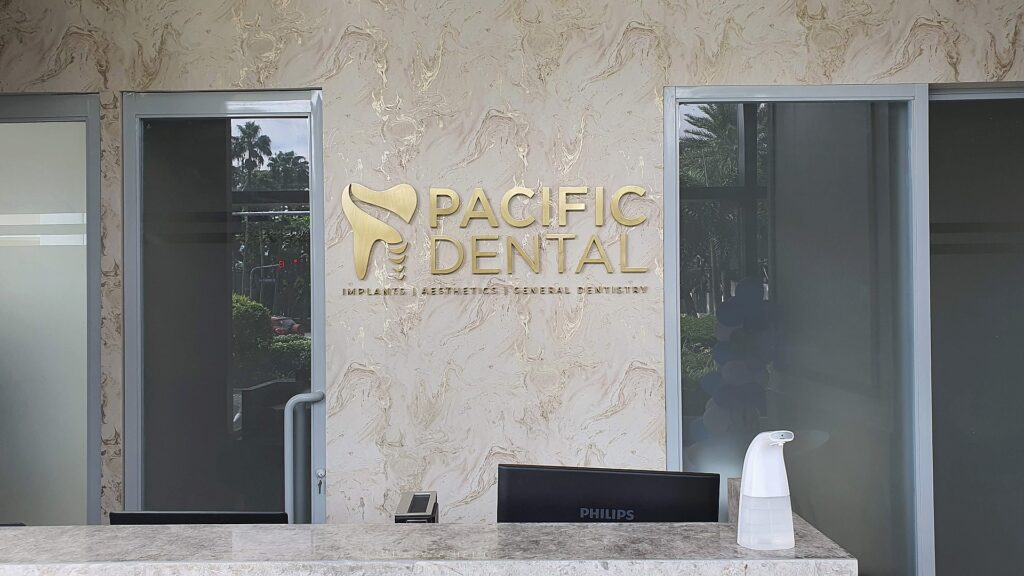In today’s fast-paced world, our health often takes a backseat to other priorities. One aspect of health that’s frequently overlooked is oral health. Regular dental check-ups, though seemingly simple, are the cornerstone of maintaining a healthy mouth. At Pacific Dental, we often stress the significance of these routine visits, and here’s why.
Foundations of Oral Health
The mouth is a gateway to our body. Healthy teeth and gums not only contribute to an aesthetically pleasing smile but also play a crucial role in overall well-being. They aid in speech, digestion, and give shape to our face. Just as regular exercise and a balanced diet are essential for a healthy body, routine dental visits are pivotal for optimal oral health.
Benefits of Routine Dental Visits
- Professional Cleaning: Even with diligent brushing and flossing, plaque and tartar can build up in hard-to-reach areas. Dental hygienists use specialized tools to clean areas that regular toothbrushes might miss, preventing potential cavities and gum disease.
- Early Detection of Dental Issues: Regular check-ups allow dentists to catch early signs of problems like cavities, gum disease, and even oral cancer. Early detection often translates to simpler, less invasive, and more cost-effective treatments.
- Gum Health Assessment: The health of our gums is as crucial as the health of our teeth. Regular check-ups can detect early signs of gum diseases like gingivitis or periodontitis, ensuring timely treatment and preventing further complications.
- Dental X-rays: These provide a detailed view of one’s oral health, revealing issues not visible to the naked eye, such as impacted teeth or issues beneath the gums.
- Oral Cancer Screening: While not as commonly discussed, oral cancer is a serious health concern. Early detection is vital, and routine check-ups ensure regular screening, dramatically increasing the chances of successful treatment.
Potential Problems Caught Early by Regular Check-ups
- Tooth Decay and Cavities: Often, by the time a cavity becomes painful, it requires more extensive treatment. Regular check-ups help in detecting and addressing cavities while they are still small.
- Gum Disease: Early stages of gum disease might be painless and go unnoticed. Regular visits ensure that symptoms are caught early, preventing progression to advanced stages that can lead to tooth loss.
- Signs of Bruxism: Bruxism, or teeth grinding, can lead to headaches, jaw pain, and worn-down teeth. Dentists can identify signs of bruxism and provide preventive solutions.
- Developmental Concerns in Children: For young patients, regular check-ups can monitor the growth and development of teeth, ensuring timely interventions if developmental issues arise.
- Oral Cancer: As mentioned earlier, early detection is paramount. Regular check-ups that include oral cancer screening can save lives.
- Impacted or Misaligned Teeth: Especially important for adolescents or those who’ve had dental extractions, regular examinations can track tooth alignment and growth, allowing for interventions like orthodontics when necessary.
Pacific Dental’s Commitment to Regular Check-ups
At Pacific Dental, we’re not just focused on treating dental issues; we’re committed to preventing them. Our comprehensive approach ensures that each visit provides a thorough examination of your oral health. Our state-of-the-art equipment, combined with our experienced team, ensures that potential problems are identified and addressed promptly.
In conclusion, the significance of regular dental check-ups cannot be overstated. These visits not only ensure the health of your teeth and gums but also have a profound impact on overall health. After all, a healthy mouth is a cornerstone of a healthy body. Don’t wait for a problem to arise. Take a proactive approach to your oral health, and schedule your routine check-up with Pacific Dental today.

